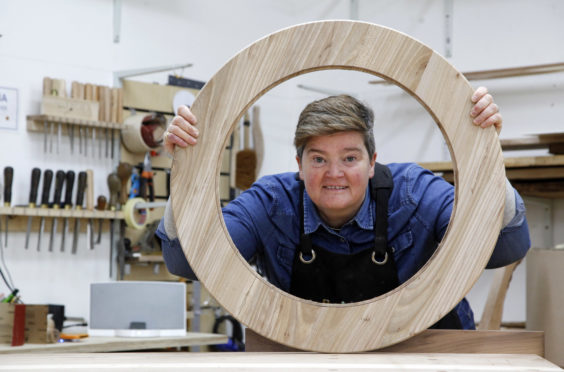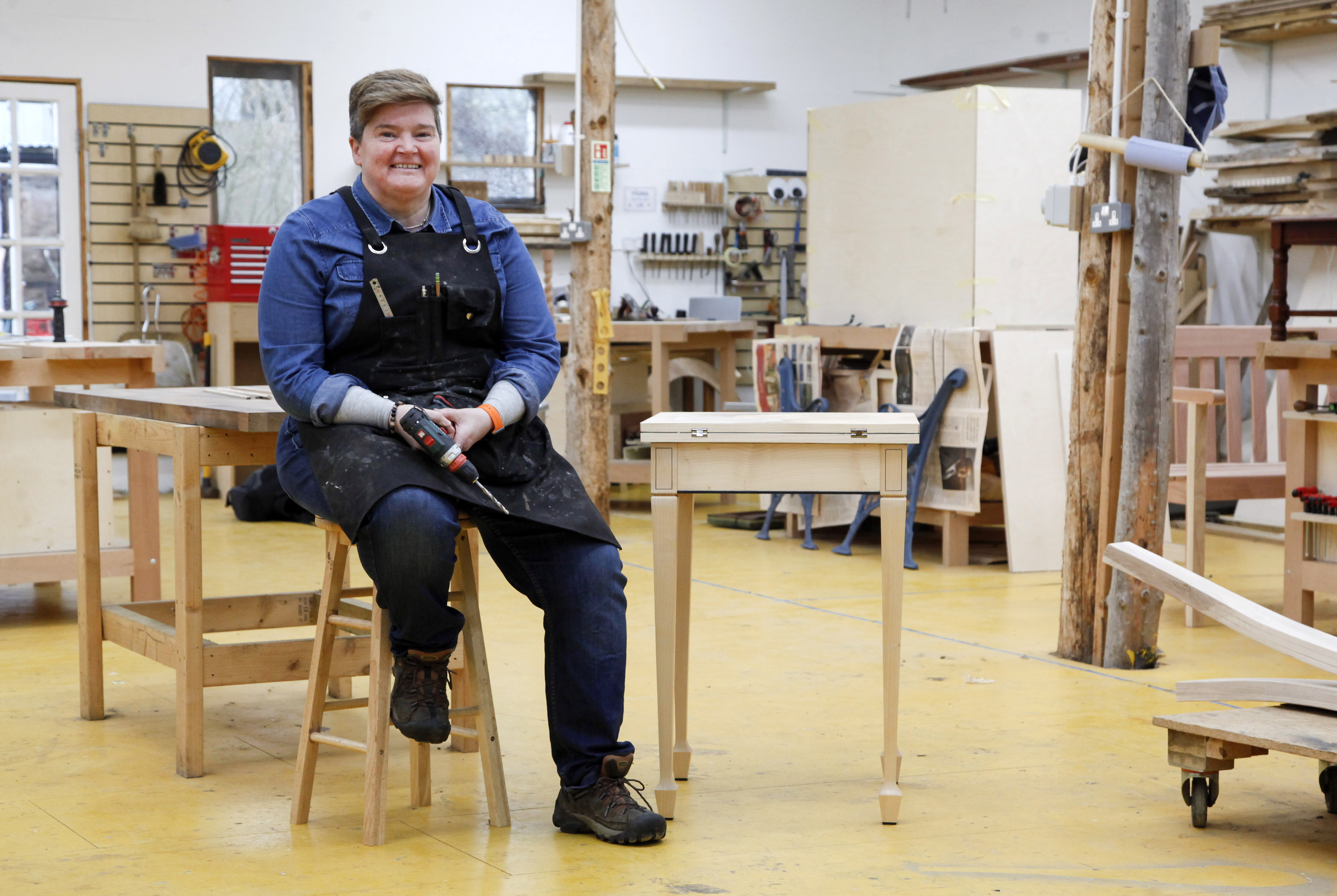
It goes against current thinking as we encourage our children and each other to push on through, no matter what obstacles lie in our path.
But could it be time to give up on a toxic relationship, accept your “dream job” is seeping joy from the rest of your life or that the stress of training for a marathon is simply not worth it?
Culturally there is real pressure to strive, yet different areas in psychology actively promote the concept of leaving behind situations which are not making us happy.
Clinical psychologist Dr Rachel Andrew, author of The Supermum Myth, believes that the notion of having to be the best is instilled in us from an early age. She said: “When children are very young we encourage them to be happy in themselves, that we love them as they are, no matter what. Then they go to school and we add this element that says you need to do well.”
January often sparks re-appraisal, but it can also be a time when people feel paralysed by indecision.
Life coach Gordon McCrorie, who has been helping Scots transform their lives for 10 years as The Happiness Guy, says the biggest barrier to moving on is our deep-rooted fear of the unknown.
He says: “Your head and your heart speak different languages and they are often not on the same page. As human’s we are searching for certainty but we have to learn that we are never going to 100% achieve that.
“We are also hardwired not to take relationships apart, even if they are not good for us. It goes back to evolution – it doesn’t care about the individual, it cares about the progression of the species. If you separate from the group you are in isolation and mammals don’t do well in isolation.
“Add our thoughts into that and that whips us up into a frenzy. We would rather have an awful certainty than any uncertainty. It takes a lot of strength and courage to break through that barrier.”
Today’s emphasis on wellbeing is showing us a gentler approach through recognising that moving on is not failure but rather clearing the decks and setting the foundation for a happier future. It’s not about living life at 100 miles per hour and hoping the occasional moment of mindfulness will make life more balanced, but rather making yourself a priority.
Gordon insists putting yourself first is not being selfish, but being smart. He said: “When people look at their family they see it from the outside. They care for those in their family unit but forget to place themselves in that circle.
“You owe it to yourself to keep yourself happy and healthy for your family. It’s an important lesson for your children too – that your emotional and physical wellbeing is your own responsibility.”
Yet many of us continue to stay in toxic marriages or stressful jobs which make us miserable. A recent poll of 1,200 workers by recruitment company CV Library, revealed that 55.6% of UK employees are unhappy in their current role, with almost a quarter citing a poor work-life balance as the main reason. Many of us feel “stuck” because of money issues but Gordon points out that can be a false economy.
Gordon says: “We all need to get paid but many of us are only doing the job to facilitate other aspects of our life. You don’t need to have the latest iPhone and two German cars in the driveway.
“When you are doing a job you love you can do it for 12 hours and still come home and have an abundance of energy. Doing a job you hate will impact on your health and wellbeing.
“Similarly, if you are in an unhappy marriage you won’t have the energy to devote to your children. If you don’t feel nourished you can’t nourish those around you.”
Feeling guilty about making a major change that will benefit you, but that loved ones may not agree with, can also hold people back.
Dr Andrew said: “We can be our own worst critic. Often we think about what we feel we ‘should’ be doing and the ‘shoulds’ often come from unrealistic ideas about family, relationships and what’s expected of us.
“These ideas can come from the way we have been parented or from wider messages about how successful or ‘good’ people live their lives. Guilt can be questioned, as can the rules we set ourselves to live by.”
Checklist on change
You will almost never know with certainty when it is time to quit but asking yourself these questions will help give you the clarity you need, says Gordon.
Listen to your instincts and you’ll be halfway to making that move in the right direction. www.TheHappinessGuy.co.uk
1 Have I done everything I can to improve the situation, eg counselling?
2 Do I have any real reason to believe things will get better?
3 If I only had a year to live, would I spend my life like this?
4 What would be the kindest thing you could do for yourself in this situation?
5 If this was happening to someone you love, what would you tell them?
6 Is there a way to take a smaller step and try a new direction, eg a trial separation?
7 What’s the worst thing that can happen? And can I handle it?
‘I earn a 10th of what I used to, but I’m happy’
Fiona Gilfillan, 52, from Tranent, quit her six-figure salary job in banking for a career in furniture design with a much smaller pay packet – and she says she’s never looked back.
I earn a 10th of what I used to, but I’m happy
“I’ve always had a bit of a creative streak and a few years ago, I started making furniture from old scaffolding boards,” the 52-year-old said.
“It was great fun, but I wanted to do something a bit finer.”
That’s when Fiona discovered the Chippendale International School of Furniture – one of the world’s most renowned furniture making and design studios.
The school, in Haddington, runs courses from introductory to professional woodwork.
Initially Fiona signed up for a beginner’s class but was immediately hooked.
“Right from the very beginning, I absolutely loved it,” she said.
“I made a stool, learned about French polishing and dovetail joints.
“It was amazing.”
For the next 18 months, Fiona – who spent 14 years as a computer analyst with Standard Life, and a further 13 working as a technology consultant with big banks like the Royal Bank of Scotland – wrestled with thoughts of quitting her high flying career and setting up her own woodwork business.
But it was only when a friend told her his wife had been diagnosed with stage four cancer that she decided to take the plunge.
“It just made me realise life is too short and I should follow my dreams,” Fiona said.
“I signed up for the professional one-on-one course the following day.
“And I realised that was what I wanted to do. Taking a big plank of rough bark and turning it into a smooth, finely polished piece was just so rewarding.”
After the course, Fiona decided to turn her back on the finance field and go full-time with woodwork.
“I had just turned 50, I had paid off my mortgage and I had some money in the bank, so I thought ‘why not just go for it?’” she said.
This summer, after finishing at the Chippendale School, Fiona launched Feemade Furniture, offering bespoke pieces.
And she couldn’t be happier.
“It’s still challenging, but in a completely different way.
“It can be complex, for example I’m currently working on a 5ft square coffee table and trying to find a design that’s not so heavy it falls through the floor. It’s not quite people’s bank accounts, but it’s a nice problem to have.
“I’m just starting out so I earn probably about a 10th of what I used to, but I’m happy.
“I suppose it makes me realise money isn’t everything.
“Instead of a power coffee on my break, I can head out into the field with my dog Eddi, who comes to work with me, and breathe in the country air. I still work hard but its just a different pace of life.
“I suppose I’m still creating, just in a different way. Before, I was creating finance computer systems – but now I’m making beautiful furniture.”

Enjoy the convenience of having The Sunday Post delivered as a digital ePaper straight to your smartphone, tablet or computer.
Subscribe for only £5.49 a month and enjoy all the benefits of the printed paper as a digital replica.
Subscribe © Alistair Linford
© Alistair Linford